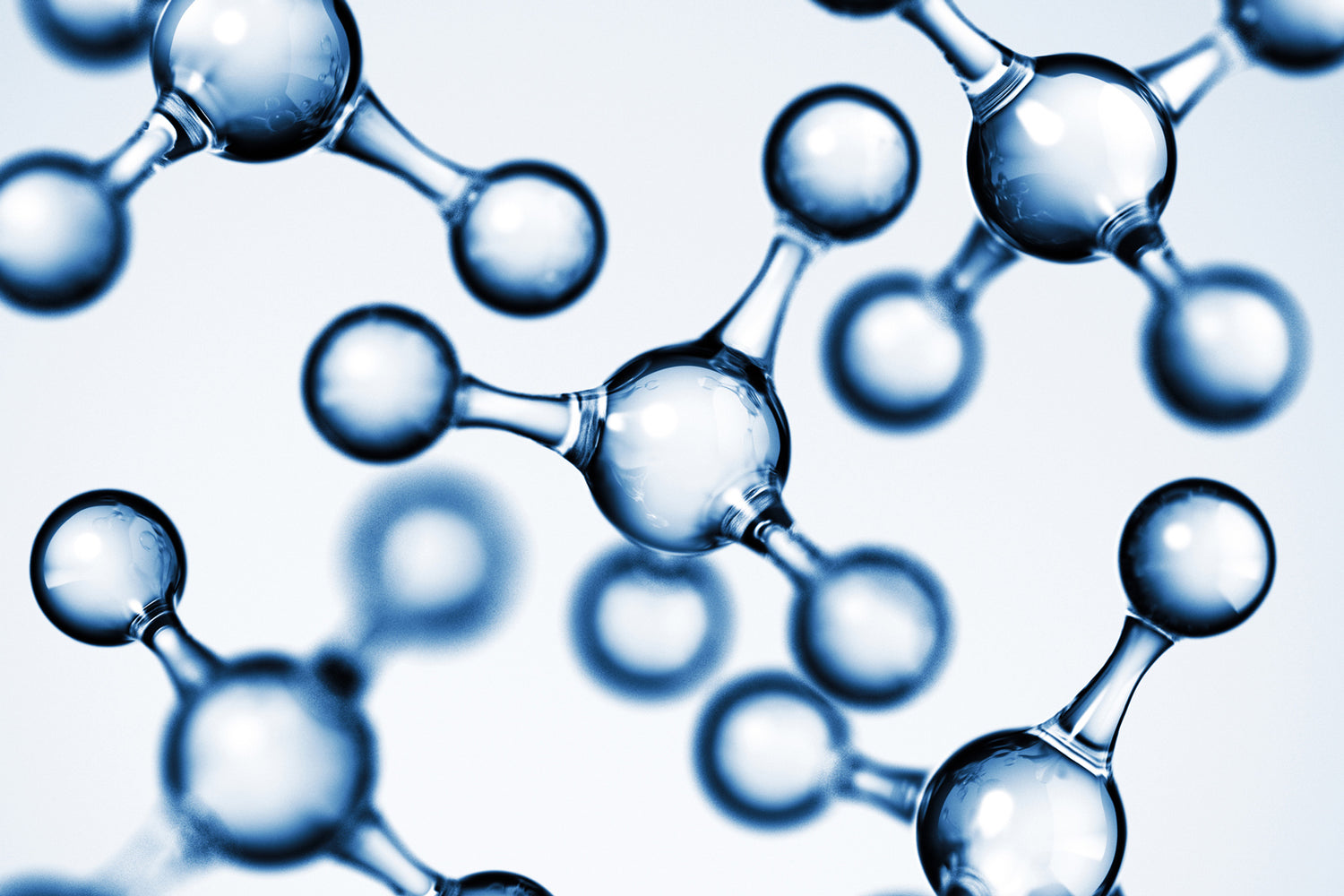What exactly is Hyaluronic Acid?
Hyaluronic acid is a crucial component of extracellular matrix in the body, and has many functions. It is also called hyaluronan or hyaluronate and abbreviated HA. HA is a humectant which means it retains moisture. It can bind up to 1000 times its weight in water.1 Although found in many areas throughout the body, it is especially prevalent in the skin, eyes and synovial fluid of the joints.
Synovial fluid is also called joint fluid. It is a thick liquid that cushions the end of bones. When joints are moved, this gooey, slippery-like fluid helps to reduce friction, lubricates and provides shock absorption.
Just as silica declines with age, HA production can also decline with age. Skin can become less plump with a decline in HA. This is why you may have seen so many beauty products that have added HA to their moisturizers. Who doesn’t want silky smooth skin? Typically, however, these topical moisturizers provide surface hydration, rather than deep hydration within the skin.2
Role of Hyaluronic Acid in the Body
HA plays a vital role in our eyes. The vitreous humor makes up about 80% of the eye. It sits between the lens at the front of the eye and the retina at the back of the eye. Filled with a gel-like substance, it is what helps the eye keep its shape. The soft, thick texture of the vitreous humor provides shock absorption to help prevent injury to the eye. It provides nutrients to the eye. It also keeps the proper amount of oxygen distributed to the retina and lens. The retina needs more oxygen than the lens. Although the vast majority of the vitreous humor is water, both collagen and Hyaluronic Acid are what help give our eyes the important gelatinous consistency.
The medical field utilizes HA in numerous ways. Qualified medical professionals offer injections underneath the skin and in the joints. It is used topically after dental procedures. It plays a role in wound healing and tissue regeneration Some medications add HA in them because it helps the body absorb the ingredients. Some eye drops include HA. Your doctor could tell you more about his/her area of expertise.
HA is available in various forms over-the counter, as well. Dietary supplements are available and are gaining popularity as consumers look for simple products that offer health benefits for eyes, joints, skin and other areas. Hyaluronic Acid is an amazing versatile molecule.
Check out what Hallelujah Diet offers for a Hyaluronic Acid supplement
Sources:
1,2 https://www.health.harvard.edu/blog/the-hype-on-hyaluronic-acid-2020012318653
https://medlineplus.gov/lab-tests/synovial-fluid-analysis/
https://www.webmd.com/osteoarthritis/nutritional-supplements-osteoarthritis
https://my.clevelandclinic.org/health/articles/22915-hyaluronic-acid
https://www.cancer.gov/publications/dictionaries/cancer-terms/def/vitreous-humor
https://www.healthline.com/nutrition/hyaluronic-acid-benefits#promotes-wound-healing
https://pubmed.ncbi.nlm.nih.gov/27280412/
https://pubmed.ncbi.nlm.nih.gov/26978861/
https://www.medicalnewstoday.com/articles/vitreous-humor#complications
https://www.sciencedirect.com/topics/materials-science/hyaluronic-acid









